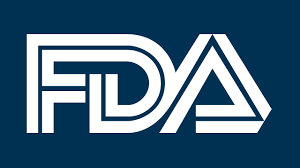The nearest DSCSA deadline kicks in on November 27, 2017. It requires the manufacturers to imprint or affix a unique product identifier – at the package level and secondary homogenous case level before sending it down the supply chain. Manufacturers must verify the serialized product at package level should they receive a request from their trading partner to assist in an investigation of a suspect product, when verifying saleable returns or when receiving a verification request from the FDA.
In July 2017, the FDA has published a draft guidance document that, when final, will delay the enforcement of the DSCSA for the manufacturers for one year until November 26, 2018. All participants of the drug supply chain – especially the manufacturers – should be careful when interpreting the meaning of the delay, and its consequences.
1. Why The Delay?
The industry is not ready for the November 2017 deadline. Since last year, many drug manufacturers, their trading partners down the supply chain, and industry surveys have expressed concern about the serialization readiness of the industry to meet the November deadline. The FDA heard you, and to avoid the potential disruptions in the drug supply chain, the agency is willing to look away for now.
2. What Is and What Isn’t Delayed
The DSCSA law has not been delayed. The one-year delay of the DSCSA enforcement will come into effect on November 27, 2017, and last through November 26, 2018. During this period, the FDA will exercise “enforcement discretion” regarding the product identifiers requirements.
The penalties under the DSCSA have not been delayed. It means you can still get penalized during the discretion period for noncompliance. However, during the discretion period the FDA will not inspect and penalize companies for no particular reason, that is just for the sake of identifying the non-compliant companies.
On the other hand, the agency can still apply penalties if an investigation into an incident in the supply chain should indicate that a company’s negligence to comply with the DSCSA caused or contributed to the incident, and/or had a negative impact on patient safety. So, in the event of an incident, you can still be investigated by the agency, and face subsequent liabilities for noncompliance.
3. Manufacturers
If the draft guidance makes it to the final version more or less unchanged, the FDA will not inspect manufacturers’ operations randomly during the enforcement discretion period, until November 26, 2018. The FDA will not penalize a manufacturer during this period if the manufacturer:
- introduces a product into the supply chain without affixing or imprinting a product identifier on each package of homogenous case
- does not perform suspect products verification when receiving a verification request
- does not verify when receiving a request from the trading partner
- does not perform verification of a saleable return
However, some DSCSA manufacturer requirements will be fully enforced starting November 27, 2017. Namely, manufacturers still have to provide the transaction information, transaction history and transaction statement in electronic format. Exceptions apply if you sell to a licensed healthcare practitioner directly and under the State law, and the practitioner is authorized to prescribe medication. See Section 582 (b)(1)© for more details.
Of note is that fact that the enforcement delay does not apply to serialized product introduced into the supply chain between November 27, 2017, and November 26, 2018. The new compliance policy does not affect the verification provisions, Section 582 (b)(4).
So, when dealing with already serialized products, manufacturers and downstream trading partners must use their serial numbers in verification.
4. Trading Partners
Under DSCSA, the downstream trading partners (repackagers – starting November 2018, wholesale distributors – 2019, and dispensers – 2020) must only engage in transactions with the drugs that come with the DSCSA-mandated serial number on it. They must verify the drugs with the manufacturer when investigating suspect products and saleable returns relying on the SNI, the standardized numerical identifier.
So, how does the period of enforcement discretion affect these downstream trading partners? When you deal with the products without a serial number introduced into the supply chain by the manufacturer during this enforcement discretion period, the FDA will not penalize you. The FDA will not take action against you if you do not use a serial number to verify a non-serialized product introduced by the manufacturer during this period.
The enforcement discretion during this year means that non-serialized products get a pass into the supply chain until November 26, 2018. And as long as they continue to circulate in the supply chain, they will continue to avoid penalties for not having a serial number.
However, the FDA leaves it to the trading partners to determine if the non-serialized drug they are investigating, returning, or buying/selling was introduced into the supply chain during this enforcement discretion period.
When the respective 2018, 2019 and 2020 deadlines kick in, the trading partners dealing with a non-serialized product that entered the supply chain before or after the enforcement discretion period:
- should not buy it
- should not return it for saleable inventory
- should consider labeling it as illegitimate if it’s under investigation
So, how do the trading partners determine if the non-serialized product entered the supply chain during the enforcement discretion period, and not before or after it? The FDA suggests two methods:
- Using the Transaction Information documents in the Transaction History to identify the date the product was first introduced into the supply chain by the manufacturer.
- Using non-DSCSA documentation like commercial and shipping invoices, or bills of lading that indicate when the manufacturer introduced the drug into the supply chain.
Therefore, once their respective DSCSA deadlines kick in, the downstream trading partners will have to determine if non-serialized products they intend to buy are in compliance (i.e. introduced in the supply chain during the enforcement discretion period).
5. Grandfathering
Recognizing the complexity of managing the grandfathered product and the effect of the enforcement delay on it, the FDA intends to publish an additional mandated grandfathering guidance. Hopefully, sooner rather than later.
About TrackTraceRx Suite
Other solutions on the market today are totally fragmented by only providing one piece of the puzzle. Pharmaceutical companies today are stuck subscribing to multiple services, accessing different companies for support and paying thousands of dollars to integrate different systems. The TrackTraceRx Suite is a game changer by combining the TrackTraceRx Traceability Solution, a ERP, and a Commerce Platform completely integrated out of the box. This eliminates having to deal with multiple support, feature services and integration costs.




